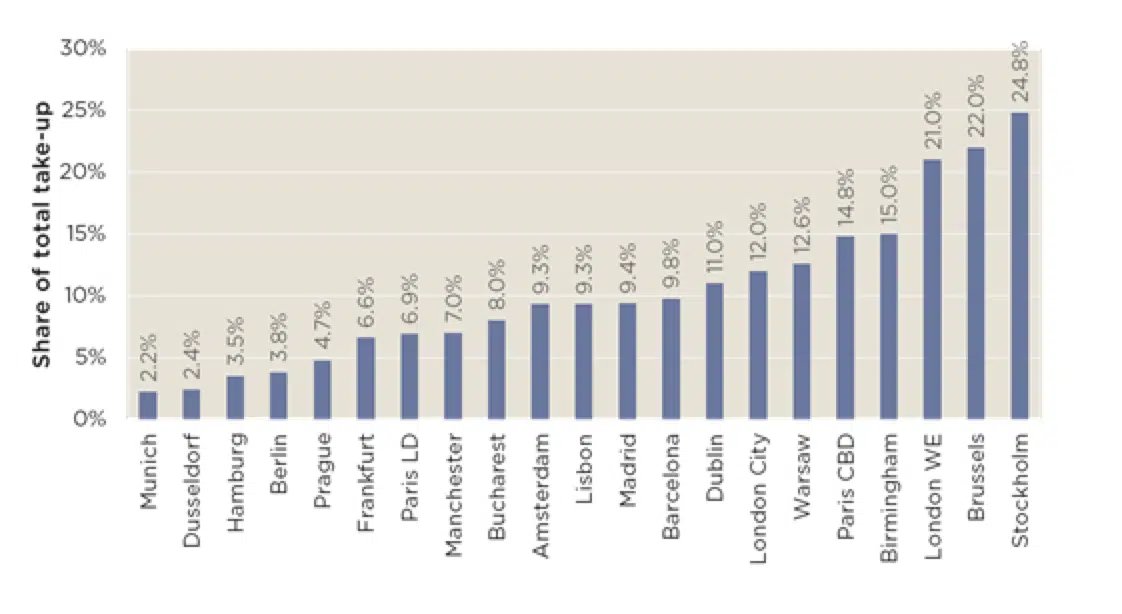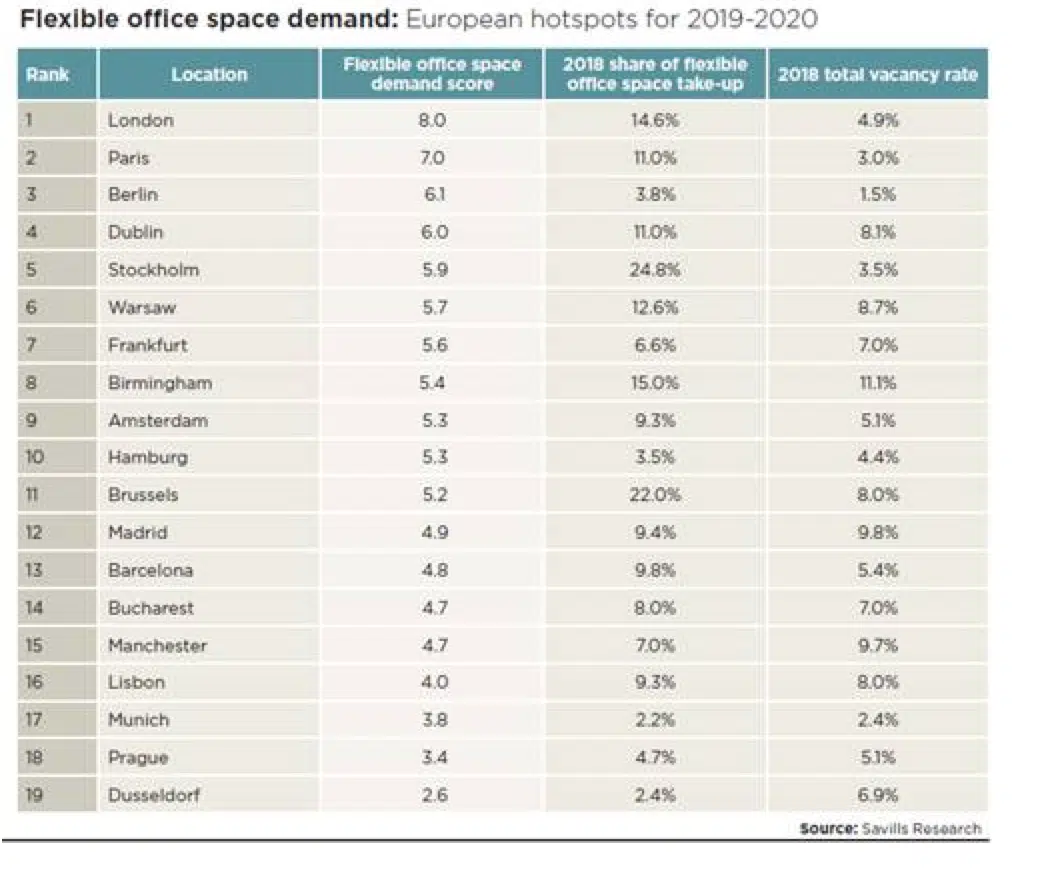Europe’s ‘second cities’ expected to be hotspots for future flexible office demand
Smaller capital cities across Europe such as Dublin, Stockholm, Warsaw and “non-capital cities” in core countries such as Hamburg, Frankfurt and Birmingham are likely to see strong demand for flexible office market, according to research from Savills and Workthere.
“As part of our research, we have identified the cities where we expect future demand to be strongest based on a set of criteria related to economic growth, job creation, innovation, and property market fundamentals,” said Eri Mitsostergiou, research director at Savills. “It is no surprise that London, Paris and Berlin are at the top of the ranking, as they attract 80 percent of the venture capital [VC] investment of the cities we analyze. However, what is interesting is that capitals outside of the three core countries — France, United Kingdom and Germany — such as Amsterdam, Brussels, Dublin, Stockholm and Warsaw as well as Germany’s second-largest city Hamburg and financial center Frankfurt all rank in the top 10.”
The research notes that a quarter (24.8 percent) of office take up in Stockholm and a fifth of office take up in Brussels (22 percent) and London’s West End (21 percent) is now flexible office space. This is followed by Paris CBD (14.8 percent), Warsaw (12.9 percent), London City (12 percent) and Dublin (11 percent).
Mitsostergiou continued, “Last year flexible office space take-up increased by 20 percent year on year to reach almost 830,000 square meters [8.9 million square feet] across the 20 major European cities that we monitor. This corresponds to 9.9 percent of the total take-up levels, when only three years ago this share was below 3 percent. As take-up of flexible offices continues to grow, it’s the smaller, ‘second cities’ where availability is higher and therefore where we can expect to see most growth.”
“Looking forward, we expect the popularity of the flexible offices sector to intensify as the sector diversifies its offer,” said Cal Lee, global head and founder of Workthere. “We believe that cities with dynamic economies, which attract innovation and talent, can see demand for flexible offices rise up to 15 percent of the total in the medium term, while in the long term this could increase to 20 percent–25 percent, especially in periods of economic growth and business investment.
“Over the next two years, we expect to see the highest expansion of flexible offices in smaller but dynamic markets where availability allows and the share of flexible office space take-up is still below 15 percent such as Dublin, Madrid, Barcelona, Bucharest and Lisbon.”


